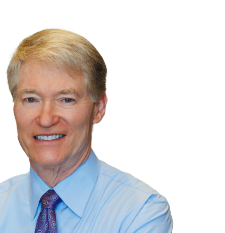Several years ago there was a study published in the journal Obesity (2011;19:1388-1395). In this study, patients underwent liposuction of lower body areas and were found to gain weight in upper body areas. The paper concluded that these patients gained weight because additional fat cells grew in areas that were not lipsuctioned. The authors of the paper stated that new fat cells were being manufactured in rsponse to the removal of fat cells with liposuction and that this accounted for the increased fullness of the upper body areas. As a result of that study, many patients ask if they should anticipate a weight gain in untreated areas after liposuction.
So what’s the answer? The answer is a simple one: Liposuction does not cause weight gain in untreated areas!
A study just published in the Aesthetic Surgery Journal (2014;34:896-206) proves this conclusion. A number of patients underwent liposuction. Their bodily dimensions and weights were measured before and after their surgery. The result was that there was no change in any body measurements after surgery, other than a decrease in size in the areas of liposuction. Weight was also unchanged other than being decreased by the amount of fat removed with surgery. Why was this different than the results from the previous study from the journal Obesity? The answer is that those patients gained weight after surgery. If you gain weight you will increase the amount of fat in untreated areas, exactly what the study found.
Illustration of the effects of weight loss or gain on body proportion before liposuction. Fat cells enlarge and shrink with weight loss and gain. Body proportion, however, is not affected. Bulges remain – they just become smaller or larger with weight change.
After liposuction, the number of fat cells has been permanently reduced in treated areas. The patient is trimmer in those areas than she would have been without liposuction, whether she gains or loses weight. There is no effect of liposuction on untreated areas.
This finding is consistent with the concept that the number of fat cells in your body remains unchanged over your adult life. The body has a “fat cell thermostat” that keeps the number of fat cells at a constant level. Each year 10% of the total number of fat cells are renewed, but the total number remains unchanged. You may gain or lose weight, but the number of your fat cells does not change – it’s their size that changes. As you gain weight, the fat cells enlarge – As you lose weight, they shrink. If you undergo liposuction, you lose fat cells from treated areas. That’s why those areas flatten out. If you gain weight, the entire area increases in size, but the bulge does not reappear. If you lose weight, the entire area flattens out.
Bottom Line: Liposuction permanently removes fat cells from treated areas. If you maintain your weight after surgery, no other part of your body will change!
Feel free to comment.
George Sanders, M.D.





